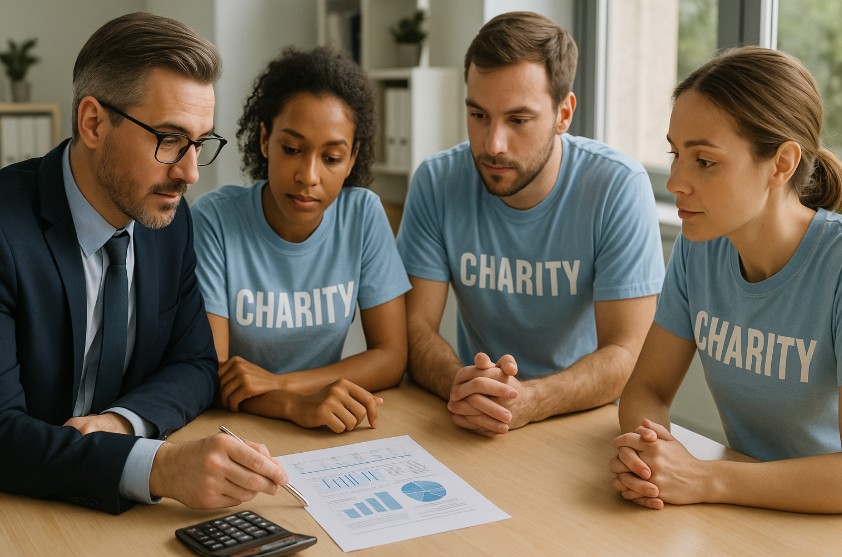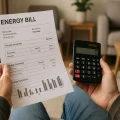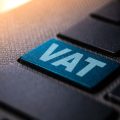Last Updated on: 17th September 2025, 11:39 am
Have you ever wondered whether your charity can claim back VAT on the goods and services it purchases? This is a question many charitable organisations in the UK struggle with, often leading to confusion and missed opportunities for savings.
VAT rules for charities differ from standard businesses, and while some goods may qualify for VAT relief or zero-rated charges, others still attract the full rate.
Understanding how VAT works, when you must register, and what you can legally claim back is crucial for your financial efficiency and compliance with tax laws.
With proper awareness, your charity could reduce operational costs and recover substantial amounts of money spent unnecessarily.
This guide explains how VAT applies to charities, what you can reclaim, and how to do it right. Whether you’re VAT-registered or not, this article will help clarify the rules and save your organisation from paying more than it needs to.
What Is VAT and How Does It Apply to Charities?

VAT, or Value Added Tax, is a consumption tax applied to most goods and services in the UK. While charities enjoy certain reliefs, they are not automatically exempt from VAT obligations. As a charity, you are still expected to understand and follow VAT rules, depending on your income and activities.
Charities in the UK can benefit from reduced VAT rates or zero-rating on specific purchases. However, they must meet strict eligibility requirements, provide the appropriate documentation, and ensure that purchases are for charitable purposes only.
This means you might not always be exempt from VAT, but you can avoid paying it in certain cases or reclaim it under specific conditions.
Do Charities Follow the Same VAT Rules as Businesses?
Yes, in many ways, charities follow the same VAT framework as commercial businesses. If your charity supplies goods or services and meets the VAT registration threshold, you’re expected to register for VAT, charge VAT on taxable sales, and file VAT returns.
Key points to remember include:
- If your charity’s VAT taxable turnover exceeds the threshold (£90,000), you must register.
- Once registered, you charge VAT on taxable supplies and submit quarterly VAT returns.
- If your activities are entirely exempt or outside the scope of VAT, you may not need to register at all.
- Not all income streams are treated equally under VAT.
It’s crucial to differentiate between taxable, exempt, and non-business activities. Incorrect classification can result in overpayments or penalties.
While charities receive unique reliefs under VAT legislation, they still operate under many of the same compliance requirements as businesses, especially when engaging in taxable activities. Knowing the difference is essential to avoid financial errors and maximise reclaim opportunities.
When Must a Charity Register for VAT in the UK?
Not every charity needs to register for VAT, but knowing when to do so is essential for compliance and reclaiming entitlements. The rules depend on your charity’s VAT taxable turnover and the nature of your activities.
What is Considered Taxable Turnover?
Your VAT taxable turnover is the total value of everything you sell or supply that is not exempt from VAT.
This includes:
- Goods or services you provide in return for payment (e.g. training courses, merchandise, or consultancy services).
- Income from taxable business activities (excluding donations or grants where nothing is supplied in return).
- Charges for services or products even if they are discounted or subsidised.
The VAT threshold in the UK currently stands at £90,000 in any rolling 12-month period. If your taxable turnover exceeds this threshold, your charity must register with HMRC for VAT. This calculation should not include income from exempt or non-business activities,
such as:
- Donations
- Grant funding with no obligation to provide services
- Activities where no fee is charged
If you exceed the threshold, registration is mandatory, and you must begin charging VAT and submitting quarterly returns.
Can a Charity Register Voluntarily?
Yes, even if your charity does not reach the threshold, you can opt to register voluntarily.
This can be beneficial if:
- Your organisation makes taxable supplies, and you want to reclaim VAT on goods or services purchased.
- You engage in regular trading activities and want to maintain compliance from the start.
- You receive sponsorships or commercial income that could fall under VAT rules.
Voluntary registration can allow charities to reclaim VAT on input costs linked to taxable business operations. However, it also means administrative responsibilities such as keeping records, issuing VAT invoices, and filing returns.
To summarise, charities must register when they exceed the threshold or choose to register for reclaim purposes. Evaluating your income streams and purchases is key to deciding whether registration is necessary or beneficial.
What Goods and Services Are Eligible for VAT Relief?

One of the most effective ways charities can save money is by understanding which goods and services are eligible for VAT relief. Although not everything is VAT-free, several categories fall under zero-rated or reduced-rate VAT when used for charitable purposes.
To benefit from VAT relief, charities must ensure the purchase:
- Meets the qualifying conditions set by HMRC
- Is used solely for charitable, non-business purposes
- Is accompanied by valid documentation provided to the supplier
Let’s explore these categories in more detail.
What Qualifies for the Reduced 5% VAT Rate?
Charities may pay a reduced rate of 5% VAT on fuel and power when used for:
- Residential accommodation, such as children’s homes or care facilities
- Charitable non-business activities, like free daycare for people with disabilities
- Small-scale use, such as electricity consumption under 1,000 kilowatt hours per month and delivery of up to 2,300 litres of heating oil
If less than 60% of the total energy usage qualifies for these purposes, you must pay 5% VAT on the qualifying portion and the standard 20% on the remainder.
What Purchases Are Zero-rated for Vat?
Charities may benefit from zero-rated VAT (0%) on:
- Advertising aimed at the general public (e.g., newspapers, banners, leaflets)
- Construction services for new buildings used solely for charitable purposes
- Medical and disability equipment, such as wheelchairs or adapted vehicles
- Rescue equipment, including ambulances and lifeboats
- Aids for disabled individuals
- Books and equipment for producing talking newspapers
- Goods imported for charitable use (e.g. basic necessities, event materials)
Charities must provide a written declaration and evidence of their charitable status to receive the zero rate. In conclusion, charities can access VAT relief by identifying eligible goods, providing correct documentation, and ensuring purchases are genuinely for charitable use.
How Does VAT Relief Work for Charity Imports?
Charities importing goods from outside the UK may qualify for VAT relief at the border, allowing them to avoid paying import VAT under certain conditions. This benefit applies whether or not the charity is VAT-registered, as long as the imported goods serve a recognised charitable purpose.
To qualify for VAT relief on imports:
- The goods must be used to benefit people in need within the UK.
- They must fall into categories such as basic necessities, office supplies for operations, or goods for resale at fundraising events supporting charitable causes.
Before importing, your charity should apply to HMRC for approval and provide documentation demonstrating your charitable status, as well as details about how the imported items will be used.
HMRC typically requires:
- A description of the goods
- The intended use
- A statement that they are not for commercial gain
Once approved, these goods can be imported without VAT charges, significantly lowering costs.
This type of VAT relief offers an opportunity for charities to source essential items internationally without the financial burden of import tax. To fully benefit, it’s important to understand the documentation and eligibility process involved.
What Is the Difference Between VAT Exempt and Zero-Rated?

Understanding the distinction between VAT-exempt and zero-rated goods is essential for VAT planning. Although both may appear similar since no VAT is paid at the point of sale, they differ significantly in terms of VAT reclaim eligibility.
- Zero-rated: Goods and services that have VAT applied at 0% but still count as taxable supplies.
- VAT-exempt: Goods and services not subject to VAT and considered outside the scope of the VAT system.
Key differences between VAT exempt and zero-rated:
| Feature | Zero-Rated | VAT-Exempt |
| VAT charged at point of sale | 0% (taxable) | 0% (non-taxable) |
| Can reclaim input VAT | Yes | No |
| Counts towards VAT threshold | Yes | No |
| Examples | Medical equipment, advertising | Welfare services, fundraising events |
For charities, zero-rated purchases allow input VAT to be reclaimed, meaning you can still deduct VAT paid on related costs. In contrast, exempt activities prevent you from recovering VAT, even if you’re VAT-registered.
The takeaway is simple: zero-rated is more favourable from a VAT recovery perspective, while exempt activities limit your financial flexibility. Proper classification ensures accurate VAT returns and optimal savings.
Can You Claim VAT Back on Fundraising or Events?
Fundraising activities are a common source of income for charities, but their VAT treatment can be complex. Whether or not you can claim VAT back depends on how the event is structured and whether it qualifies as exempt income.
In most cases, fundraising events are exempt from VAT, which means:
- You do not charge VAT on ticket sales or participation fees.
- You cannot reclaim VAT on related costs such as venue hire, catering, or promotional materials.
However, if an event has commercial elements (e.g. selling merchandise or offering sponsorship opportunities), these may count as taxable supplies, which changes the VAT status.
VAT treatment of fundraising events:
| Type of Activity | VAT Status | Can You Reclaim VAT? |
| Ticket sales for fundraising gala | Exempt | No |
| Merchandise sold during event | Taxable | Yes |
| Sponsored events with advertising | Taxable | Yes |
If your event mixes exempt and taxable elements, you’ll need to apply partial exemption rules to determine the proportion of VAT you can recover. Understanding these rules helps your charity avoid financial surprises and better plan event budgets.
Is It Possible to Reclaim VAT on Building or Construction Costs?

Building and construction projects often involve significant costs, so knowing whether your charity can reclaim VAT is vital. The answer depends on how the building will be used.
If the building is used solely for charitable non-business purposes, such as:
- Providing free education
- Offering welfare or community services
Then the project may be eligible for zero-rating, meaning:
- VAT is charged at 0% on construction services
- Your charity may not need to reclaim VAT because it’s never charged
However, if the building is used for both business and charitable activities, VAT may be partially or fully applicable.
Building VAT treatment for charities:
| Use of Building | VAT Relief | Can Reclaim VAT? |
| 100% charitable non-business use | Zero-rated | Not applicable |
| Mixed use (charity + business) | Standard-rated | Partially |
| Commercial activities only | Standard-rated | Yes |
To apply for zero-rating, you must give the contractor a certificate of eligibility before work begins. Proper planning and documentation can significantly reduce your charity’s construction costs.
Common Mistakes Charities Make with VAT (And How to Avoid Them?)
VAT rules for charities are complex, and mistakes can lead to overpayments or even penalties. Understanding common errors helps protect your organisation from unnecessary losses.
Frequent VAT mistakes by charities include:
- Assuming all charity activities are VAT-exempt
- Failing to register when the taxable turnover exceeds the threshold
- Incorrectly classifying donations, grants, or trading income
- Not submitting the required written declarations for VAT relief
- Failing to distinguish between zero-rated and exempt goods
To avoid these errors:
- Regularly monitor your income streams
- Consult HMRC’s VAT guidance for charities
- Keep meticulous records of invoices and declarations
- Conduct periodic VAT health checks
Mistake vs. Prevention:
| Common Mistake | How to Avoid |
| Overlooking VAT registration threshold | Track taxable income monthly |
| Reclaiming VAT on exempt activities | Understand which costs are eligible |
| No documentation for VAT relief | Submit written declarations |
By staying informed and proactive, your charity can make the most of available relief while staying fully compliant.
Can Charities Truly Save by Claiming VAT Back?

Yes, charities can make significant savings by understanding and applying VAT rules correctly. Claiming VAT back or securing relief on purchases helps reduce operational costs and directs more funds to core missions.
Savings are maximised when:
- Purchases are correctly zero-rated or charged at the reduced rate
- The charity is VAT registered and engaged in taxable activities
- Accurate records are maintained, and declarations are submitted
However, blindly reclaiming VAT or misclassifying activities may lead to penalties or back payments, so it’s essential to follow rules carefully.
VAT savings summary:
| Activity | VAT Saving Potential |
| Zero-rated equipment purchases | High |
| Input VAT reclaimed on taxable activities | High |
| VAT on exempt activities | Not recoverable |
| Import relief with valid documentation | Moderate |
In conclusion, yes, charities can save money through VAT recovery and reliefs, but only when the eligibility conditions and administrative responsibilities are properly managed.
Conclusion
Understanding whether your charity can claim back VAT is not just about compliance—it’s about maximising your organisation’s financial potential. From zero-rated and reduced VAT opportunities to reclaim procedures and import exemptions, there are many ways to reduce your overall VAT burden.
However, it’s essential to distinguish between taxable, exempt, and non-business activities and maintain the right documentation at every stage. Being VAT-registered opens further opportunities to recover input tax on goods and services directly tied to your taxable outputs.
Whether your charity is large or small, taking time to understand and apply VAT rules correctly can result in thousands of pounds saved every year.
Use the guidance provided in this blog to review your current VAT position and seek advice when needed. Your organisation’s resources should be directed where they matter most—serving your mission, not lost to tax confusion.
FAQs
Can a charity reclaim VAT on all its purchases?
No, only VAT on purchases related to taxable business activities can be reclaimed.
What’s the current VAT registration threshold for charities?
Charities must register if their taxable turnover exceeds £90,000 in a rolling 12-month period.
Do donations impact VAT registration?
No, donations are outside the scope of VAT and don’t count toward the registration threshold.
Can non-registered charities access VAT relief?
Yes, they can request reduced or zero-rate VAT at the point of purchase with proper documentation.
Are charity fundraising events always exempt from VAT?
Most are exempt, but this also means VAT on related costs cannot usually be reclaimed.
What should a charity submit to claim VAT relief?
You must provide a written declaration and proof of charitable status to the supplier.
How long can a charity backdate a VAT reclaim?
If eligible, a charity can reclaim VAT for up to four years on qualifying activities.




















No Comments
Leave a comment Cancel